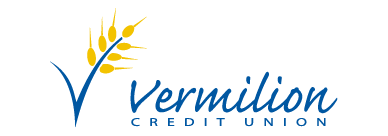Choosing Your Financial Institution
Understand the key differences between credit unions and banks.
Choosing your financial institution
What was the very first financial choice you ever made?
Think about it: it likely took place before your first job, even as far back as when your annual income consisted of Tooth Fairy money and lucky pennies. The very first financial decision you ever made is also one of the most important choices—it’s where to keep your money.
When you first made that decision, piggy banks, sock drawers and buried-in-the-sandbox-like-pirate-treasure all seemed like perfectly acceptable options. As it turns out, they aren’t nearly as super-secret as you might have hoped. Opening a bank account is the best solution, but in order to do that, you first need to choose a financial institution—so, your choice is between a bank and a credit union.
Banks and credit unions offer essentially the same products and services, but there are huge differences in the way they operate. Despite this, many people put more thought into building their Netflix queue than they do choosing their financial institution. It’s a Money Thing is here to help fill in the gaps and show you how the differences can affect your dollars. Whether you’re just starting out or rethinking your current financial setup, here is what you need to know.
The main difference between banks and credit unions is in their structure. Banks are purely for profit, while credit unions are member-owned. This means that banks have numerous expenses that credit unions simply don’t have. Banks have to pay their shareholders and their private investors in addition to regular operating costs. Banks are set up in a way that allows a select group of people to make money off of your banking activity.
Credit unions, on the other hand, are set up in a way that allows all of their members to benefit from their profits. Once the operating costs are covered and reserves are set aside, the profits are distributed back to members in the form of free banking products, lower interest rates on loans and higher interest rates on savings accounts.
Credit unions sound pretty great, right? You might be wondering why some people choose banks over credit unions, even though credit unions consistently outperform banks when it comes to deposit and loan rates and customer service.
The simple answer is that banks are bigger, and some people believe bigger is better. A more effective approach would be to figure out your banking priorities. Here are some factors to consider:
1) Am I eligible for an account? Banks are open to anyone. Credit unions have membership requirements, but don’t let that intimidate you! Requirements can be as simple as living in a certain community or working in a certain field. Most Canadian credit unions have very open membership requirements.
2) How much does it cost to get set up? Are there any fees associated with opening an account? Is there a minimum balance required? Joining a credit union involves purchasing a share (they’re usually $5), but this is different from a fee—it means you’re a member-owner of the credit union.
3) Will I have good access to ATMs? You might feel as though you see larger bank ATMs everywhere, but credit union ATMs are just as accessible. In fact, the largest credit union ATM network in Canada is actually larger than the networks of both Scotiabank and the Bank of Montreal. Find out which other financial institutions share your local credit union’s network—free ATM transactions are not limited to machines with a particular credit union name on them.
4) What can I do online? More and more financial institutions are offering online banking services. Find out what you can do from your computer and smartphone. Can you check your balance? Schedule payments? Transfer money between accounts? Taking advantage of online products can be super-convenient, and can avoid a trip to the ATM or the nearest branch.
5) And speaking of the nearest branch, where is it? Find out what the hours of operation are and how they work with your schedule. Find out if you can bank through other branches, too. This could come in handy if there’s a location close to work or school.
6) What can my financial institution do for me? Ask about products that are tailored to your situation. How do the interest rates compare to other financial institutions? Are there free products you’re eligible for? Don’t settle for a financial institution just because you need an account—you should also want to have an account there.
At the end of the day, choosing a financial institution is a personal decision with a huge influence on how you manage your money and your time. If you make the effort to ask questions and compare services, you’ll find the best home for your finances.
Understand the key differences between credit unions and banks.
Choosing your financial institution
What was the very first financial choice you ever made?
Think about it: it likely took place before your first job, even as far back as when your annual income consisted of Tooth Fairy money and lucky pennies. The very first financial decision you ever made is also one of the most important choices—it’s where to keep your money.
When you first made that decision, piggy banks, sock drawers and buried-in-the-sandbox-like-pirate-treasure all seemed like perfectly acceptable options. As it turns out, they aren’t nearly as super-secret as you might have hoped. Opening a bank account is the best solution, but in order to do that, you first need to choose a financial institution—so, your choice is between a bank and a credit union.
Banks and credit unions offer essentially the same products and services, but there are huge differences in the way they operate. Despite this, many people put more thought into building their Netflix queue than they do choosing their financial institution. It’s a Money Thing is here to help fill in the gaps and show you how the differences can affect your dollars. Whether you’re just starting out or rethinking your current financial setup, here is what you need to know.
The main difference between banks and credit unions is in their structure. Banks are purely for profit, while credit unions are member-owned. This means that banks have numerous expenses that credit unions simply don’t have. Banks have to pay their shareholders and their private investors in addition to regular operating costs. Banks are set up in a way that allows a select group of people to make money off of your banking activity.
Credit unions, on the other hand, are set up in a way that allows all of their members to benefit from their profits. Once the operating costs are covered and reserves are set aside, the profits are distributed back to members in the form of free banking products, lower interest rates on loans and higher interest rates on savings accounts.
Credit unions sound pretty great, right? You might be wondering why some people choose banks over credit unions, even though credit unions consistently outperform banks when it comes to deposit and loan rates and customer service.
The simple answer is that banks are bigger, and some people believe bigger is better. A more effective approach would be to figure out your banking priorities. Here are some factors to consider:
1) Am I eligible for an account? Banks are open to anyone. Credit unions have membership requirements, but don’t let that intimidate you! Requirements can be as simple as living in a certain community or working in a certain field. Most Canadian credit unions have very open membership requirements.
2) How much does it cost to get set up? Are there any fees associated with opening an account? Is there a minimum balance required? Joining a credit union involves purchasing a share (they’re usually $5), but this is different from a fee—it means you’re a member-owner of the credit union.
3) Will I have good access to ATMs? You might feel as though you see larger bank ATMs everywhere, but credit union ATMs are just as accessible. In fact, the largest credit union ATM network in Canada is actually larger than the networks of both Scotiabank and the Bank of Montreal. Find out which other financial institutions share your local credit union’s network—free ATM transactions are not limited to machines with a particular credit union name on them.
4) What can I do online? More and more financial institutions are offering online banking services. Find out what you can do from your computer and smartphone. Can you check your balance? Schedule payments? Transfer money between accounts? Taking advantage of online products can be super-convenient, and can avoid a trip to the ATM or the nearest branch.
5) And speaking of the nearest branch, where is it? Find out what the hours of operation are and how they work with your schedule. Find out if you can bank through other branches, too. This could come in handy if there’s a location close to work or school.
6) What can my financial institution do for me? Ask about products that are tailored to your situation. How do the interest rates compare to other financial institutions? Are there free products you’re eligible for? Don’t settle for a financial institution just because you need an account—you should also want to have an account there.
At the end of the day, choosing a financial institution is a personal decision with a huge influence on how you manage your money and your time. If you make the effort to ask questions and compare services, you’ll find the best home for your finances.

 Search
Search







 www.google.com
www.google.com